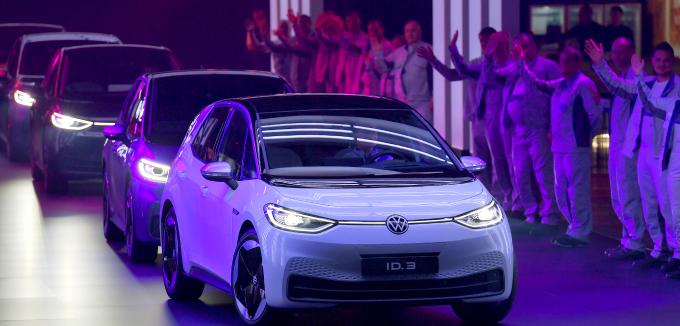REUTERS
Electric car production at Volkswagen
According to a study, ten car manufacturers face EU fines totaling 3.3 billion euros next year for high CO2 levels. Short-term measures such as discounts for their electrified or particularly economical cars could hardly compensate for this, explained the industry experts at the management consultancy Deloitte in Munich. The study did not name the names of the car manufacturers.
Last year, new EU cars emitted 108 grams of CO2 per kilometer. The EU has been stipulating a maximum of 95 grams for climate protection since January. Large, heavy cars are allowed to emit a little more. This year, manufacturers can leave out the 5 percent of their worst-performing fleet in the calculation – but in 2021 it will be serious. For every gram above the limit, 95 euros are due – for every car sold. By 2030, the EU will gradually lower the limit to 59 grams.
The share of plug-in hybrids and electric cars in new registrations is expected to increase to 11 percent this year and to 34 percent by 2026, according to the Deloitte study. The proportion of SUV vehicles is expected to increase to 41 percent – and 40 percent of these city off-road vehicles will then be on the road with plug-in hybrid or electric drive, but only 32 percent of the other cars.
Car manufacturers will likely have to continue to face high fines
“The profit margins for the large SUVs are high,” said Deloitte industry expert Thomas Schiller. With electrified SUVs, manufacturers could practically kill two birds with one stone.
But the corporations would have to struggle with the CO2 requirements for years to come: “The associated loss of profitability can only be avoided to a limited extent.” Schiller said: “Today’s automakers have a choice of paying high CO2 penalties to the EU or selling electric cars at prices that make little or nothing. Electric cars will continue to be a subsidy business for years to come. ” That only changes when they have large quantities.
dpa / rei

